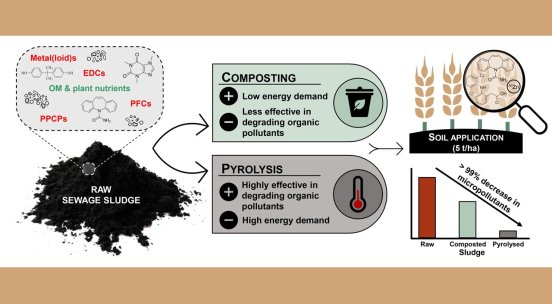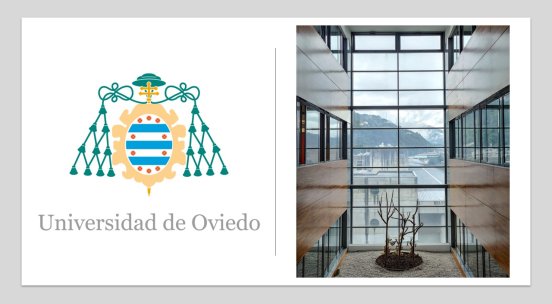
Paper published in the Chemosphere
Read our publication here!

Paper published in the Science of the Total Environment
Read our publication here!


Prof. Meththika S. Vithanage (Sri Lanka) gave a seminar on the 29th April 2024.

Paper published in the Science of the Total Environment
Read our publication here!

Paper published in the Science of the Total Environment
Read our publication here!

Paper published in the Environmental Science: Nano!
Read our publication here.

Paper published in the Soil Use and Management!
Read our publication here.

Biochar to mitigate carbon footprint: 19th July 2023 at 10 am in D424

WATER analysis: streams, ponds, quarries, wells, and swimming pools
NETWORKING

Biochar in green remediation: 7th June 2023 at 2 pm
Peer-review publishing today: 8th June 2023 at 10 am

biogeochemistry, trace elements, metal(loid)s etc.
ADVERTISING NETWORKING

Field application on our experimental plots near Ústí nad Labem

Traffic is a major source of risk metal(loid)s in Jakarta dust
Read our publication here.

ZVI nanoparticles offered no advantage over microparticles in contaminated soil
Paper published in Applied Geochemistry

Geological excursions and sampling of soil and water

Collaboration between scientists and analytical instrument producers

Wednesday 16th March 2022 at 10.30 am in room D217
NETWORKING

Start of the field experiments in two different localities

Paper published in the Chemical Engineering Journal!

Barbora Hudcová's internship on complexation modeling
NETWORKING

To compost or to pyrolyze? That is the question!

Biochar not only for agriculture and industry
NETWORKING

Book chapter published by The Royal Society of Chemistry!
Read our publication here.

Published in Critical Reviews in Environmental Science and Technology
Read our publication here.

Soil chemistry associated with soil’s physical and hydraulic properties
Read our publication here.

Great accomplishment in Environmental Science & Technology!
Read our publication here.

The 1st international ON-LINE workshop under V4 Biochar Platform and NUTRIMAN project

Look into our fieldwork near Ústí nad Labem!

The role of Fe- and Mn-based soil amendments in pollution mitigation
Read our publication here.

Sustainability and efficient zinc retention by zeolites prepared from waste
Read our publication here.

Fieldwork at our experimental site in Suchdol started!
See our unique set-up!

Three fundamental/applied research projects of our group successfully funded!

Agrostis capillaris and Festuca rubra as potential phytostabilizing plants
This publication available here.

Aikaterini Mitzia did an internship on a unique biogeochemical microcosm.
NETWORKING

Industry and domestic heating produce pollutants toxic for 3-year-old children.
This publication available here.

Barbora Hudcová did an internship on adsorption modeling.
NETWORKING

Mineralogy, chemistry and surface properties of zeolitic materials
This publication available here.

Seasonal fluctuations of Zn, Pb, As and Cd in biomass
This publication available here.

Compost-char hastened the composting process.
This publication available here.

A temporal study of solid phase geochemistry
This publication available here.

Specialised course on geochemical and transport modelling was given by Rémi Marsac and Diederik Jacques

Practical use of LDH-biochar in column technology for commercial purposes

Lukáš Trakal gave an interview focusing on reasons for drought and potential solutions.

Review paper reflecting cooperation with prof. Dinesh Mohan (Jawaharlal Nehru University, New Delhi, India)

Seminar will take place on Thursday 20th June 2019 at 3.00 pm in room Z1.
NETWORKING

How to collect soil and water samples? How to analyse them?
NETWORKING

Geological excursions and sampling of soil and water

Three approaches evaluated Cr(VI) adsorption and/or reduction in soils
This publication available here.

Surface complexation modeling coupled with spectroscopic and microscopic techniques
This publication available here.

Interactions of nZVI with soil microbial community published in Environmental Science Nano
This publication available here.

Seminars will take place on Wednesday 6th February 2019 at 2 pm in room D222.

PhD student(s) wanted! Application deadline:
March 10 2019

Multidisciplinary project on biochar application to solve drought and other issues

"Global Cd and Pb isotope signal in the Pan-Arctic: influence of local and distant sources"

Seminar will take place on Thursday 13th December 2018 at 10.00 am in room Z239.

The Bohemian AvantGardeners attended student competition.
Visit their website for details.
Zuzana Michálková joined the group of X-ray photoelectron spectroscopy.
NETWORKING

Mg-Fe (hydr)oxides showed excellent sorption efficiency for As, Pb and Zn
This publication available here.

Metal(loid) behavior in the AM fungal–root–nZVI system
This publication available here.

Michael Komárek started research with the group of Professor Mélanie Davranche.
NETWORKING

Seminar will take place on Wednesday 2nd May 2018 at 10.30 am in room D218.

PhD student(s) wanted for multidisciplinary solution to currently highlighted issues.

Our Ph.D. student Barbora Hudcová received the prestigious Fulbright-Masaryk fellowship.

Nanoiron efficiency was evaluated in the rhizosphere.
This publication available here.

Junior project on a novel composite for remediation of contaminated soils
(Czech Science Foundation)

New project on innovative method for identification of adsorption mechanisms
(Czech Science Foundation)

New project targets on substitution of commercial substrate for compost + biochar

New project on applied research in remediation technologies (funded by the Technology Agency of the Czech Republic)

Amorphous manganese oxide coating of biochar improves its sorption efficiency.
This publication available here.

The impact of lead from unleaded gasoline was evaluated using Pb isotope tracing.
This publication available here.

Modeling and analytical approach for identifying adsorption mechanisms.
This publication available here.

Amorphous Mn oxide and nanoiron on sunflower were tested for stabilization.
This publication available here.

Lectures and laboratory practice in environmental geochemistry opened the Summer School of Applied Ecology on 24th July
International students attended excursions and collected soil and water samples.

Prof. Michael Komárek and Paul Eric Aspholm broadcasted in Magazín Leonardo

The conference will take place on 25th April 2017 9:00 – 12:00 a.m. in room Z239

Seminar will take place on Thursday 23 March 2017 at 2 pm in room D226

Samples of fresh snow were collected in the area of Finnmark to trace metal contamination and metal isotopes.

Martina Vítková performed research stay at prestigious institute in Tulln an der Donau
NETWORKING

In this study, surface complexation modeling is coupled with various spectroscopic techniques.

This publication available here

This publication available here

This publication available here

Lecture: „Waste management – what you don't know about it“

Workshop takes place at the FES from 26th September to 1st October, 2016

This publication available here

This publication available here

Dr. Luke Beesley (the James Hutton Institute, Aberdeen, Scotland) visited our team

Lukáš Trakal presented the latest experimental approaches in Aberdeen

Workshop including presentations of the results of our Norway grants project (CZ09 Czech-Norwegian Research Programme) ISOFIN

Ostrava region in Upper Silesia at the Czech-Polish border belongs to the most contaminated sites in Europe

New paper published in Environmental Pollution is now available
NETWORKING

Read our recent paper by Zuzana Michálková et al. focused on „Selected Fe and Mn (nano)oxides as perspective amendments for the stabilization of As in contaminated soils“.

Our team made another journey to the very North of Norway to collect snow samples for chemical and metal isotope analyses

Lukáš Trakal et al. recently published new data about „Lead and cadmium sorption mechanisms on magnetically modified biochars“

Interview with Thomas D. Bullen (USGS) who has been working with us for the past few weeks at the Environmental Geochemistry Laboratory
We use cookies on the web presentations of the Czech University of Life Sciences Prague (under the czu.cz domain). These files give us ways to serve our services better and help us analyze site performance. We can share information about how you use our sites with our social media, advertising, and analytics partners. In the settings, you can choose which cookies we can use. You can change or revoke your consent at any time.